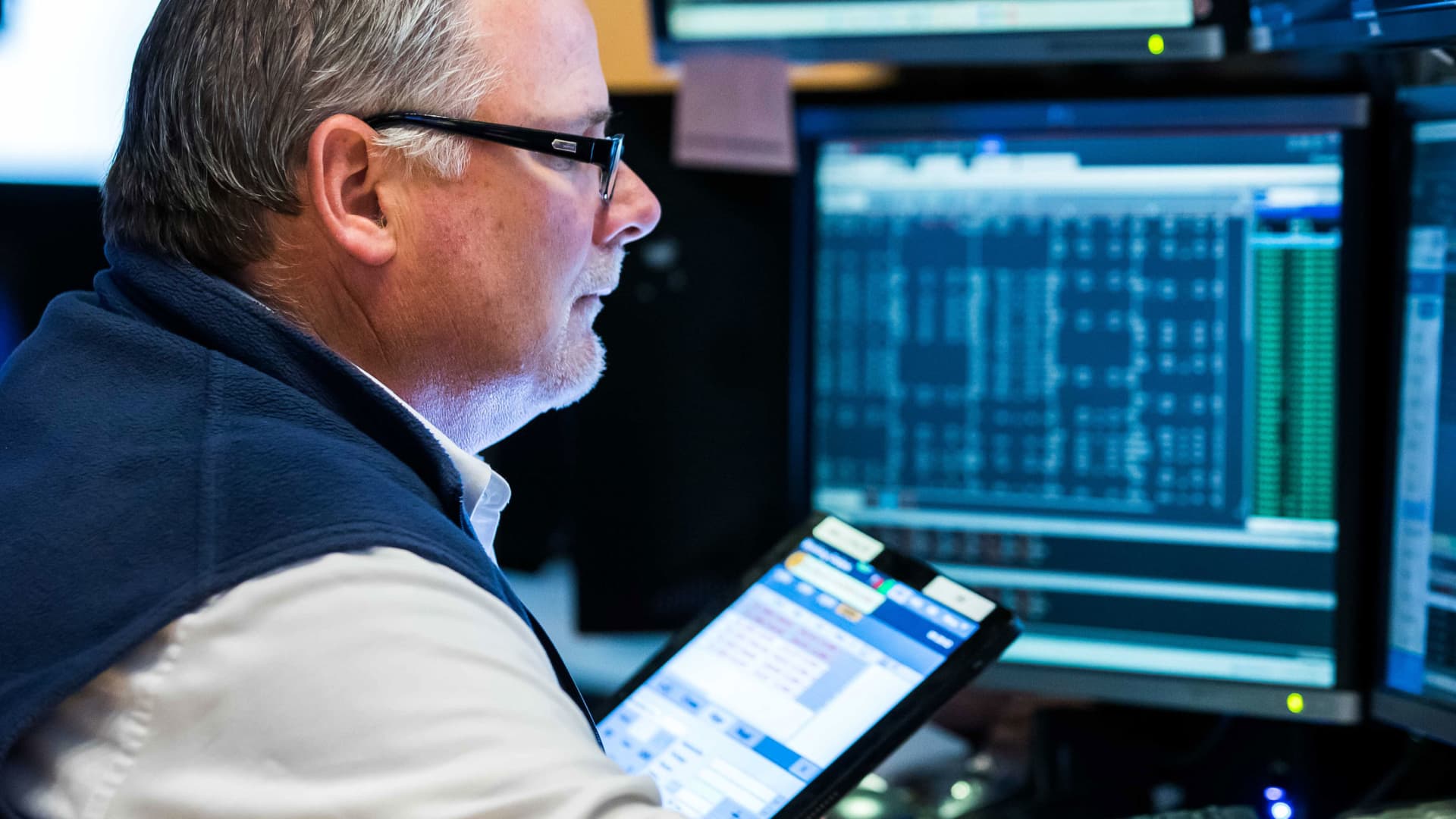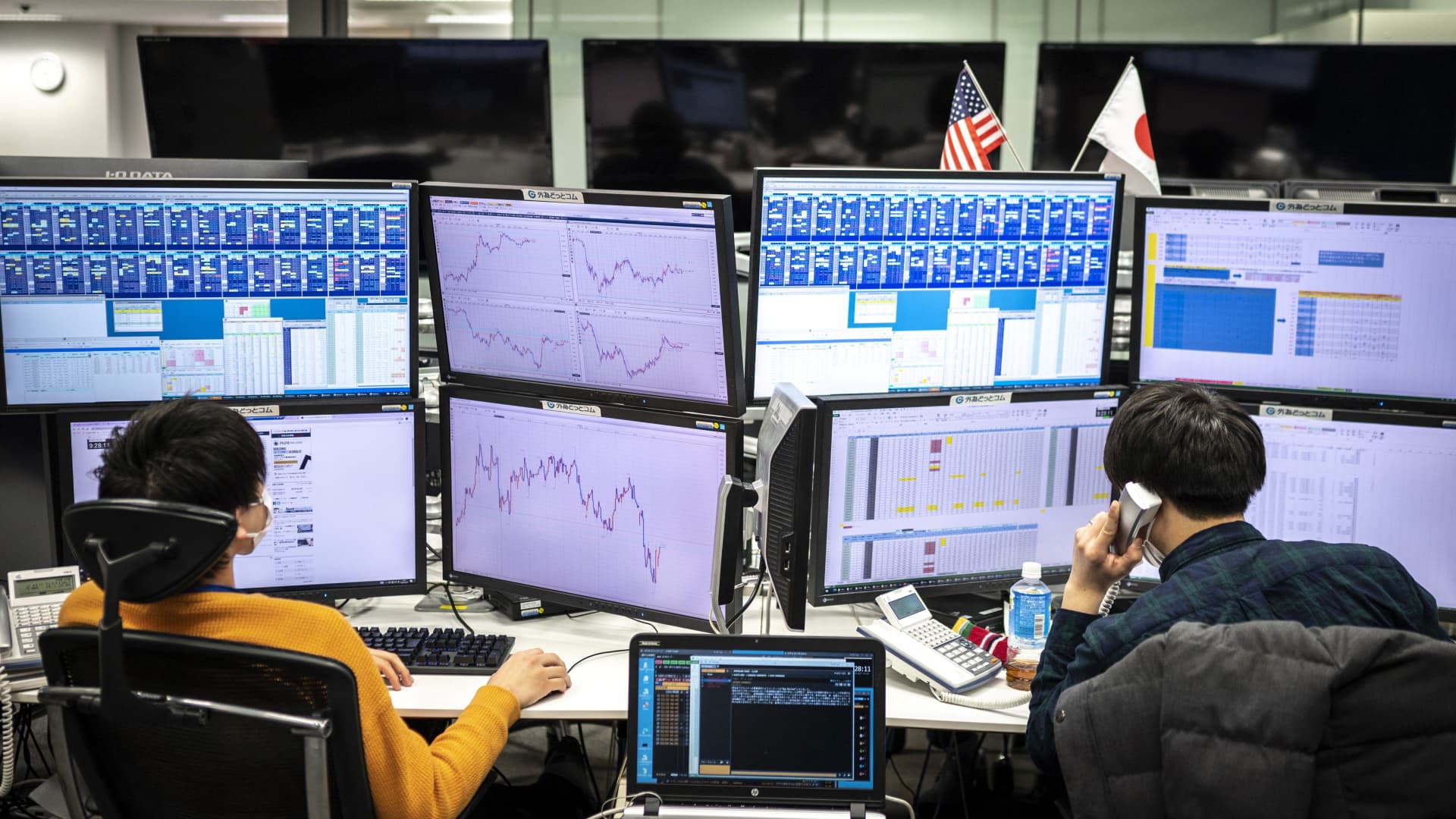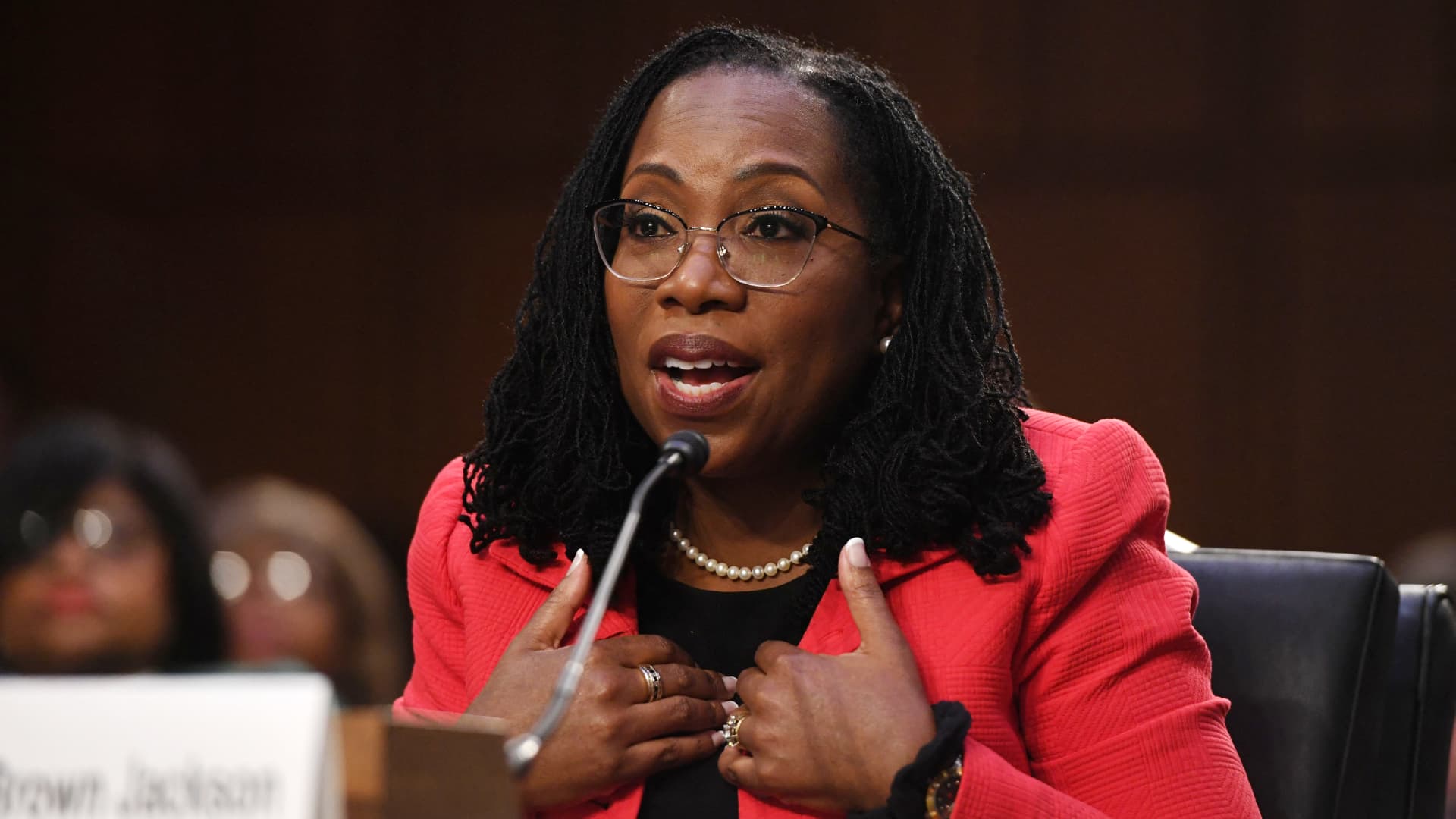Stocks are little changed as investors monitor recession signals, falling oil prices
Stocks hovered near the flat line on Wednesday as investors shifted toward defensive sectors.

U.S. stocks hovered near the flat line on Wednesday after the market staged a big midday reversal on Tuesday.
The Dow Jones Industrial Average gained 19 points, or about 0.1%. The S&P 500 and Nasdaq Composite were flat.
Investors appeared to be drifting back into defensive stocks on Wednesday, with utility company Constellation and pharmaceutical giant Merck among the top performers in the S&P 500. Shares of Walmart rose 1.4%.
Wednesday's moves follow an intraday reversal in the previous session. The S&P 500 rallied back from a 2% loss in the final hours of trading on Tuesday and finished the day up 0.2%. The tech-heavy Nasdaq Composite outperformed, jumping 1.75%. The Dow lost 129 points, but was down more than 700 points at one point.
Investors continued to worry about whether the economy is falling into a recession after the benchmark 10-year U.S. Treasury yield fell below the 2-year yield. The so-called yield curve inversion historically has been a warning sign that the economy may be falling or has already fallen into recession.
Oil prices tumbled below $100 a barrel Tuesday, further reflecting a potential economic slowdown, and slipped further on Wednesday. Shares of Chevron and Exxon dropped more than 1% on Wednesday, extending declines from the previous session.
Some Wall Street analysts say a recession could be mild. On Tuesday Credit Suisse said it sees the U.S. dodging a recession as it slashed its year-end S&P 500 target to reflect the effect of higher capital cost on stock valuations.
"[The market] has been bracing for [a recession], and now it may actually be embracing it, the idea being: let's just get it over with, we're going have a recession, let's do it. Let's clean out the excesses and start all over again," said Ed Yardeni of Yardeni Research on CNBC's "Closing Bell: Overtime."
"The market is starting to look ahead into next year and that could very well be a recovery year from whatever this recessionary environment turns out to be," he added. "We're all kind of doing a Hamlet recession – to be or not to be. I'm kind of thinking that there's going to be a mild recession."
Stock picks and investing trends from CNBC Pro:
NewEdge Wealth chief investment officer Cameron Dawson echoed that sentiment.
"Do we have a kind of drawdown that looks to be in that 30% range, which is the average for recessions, or something that looks closer to down 50%, which is what we saw back in the early 2000s and 2008 where we had two debt crises?" she said. "We don't see a debt crisis. We think that we could start to find some value around that 3,400-3,500 level because that's what gets us back to the pre-Covid highs."
There are no major earnings reports scheduled for Wednesday, but there will be a slew of economic reports coming out, including the minutes of the Federal Reserve's June meeting in the afternoon.
Mortgage demand fell week over week even as rates declined, according to the Mortgage Bankers Association. The Institute for Supply Management services PMI data came in better than expected, but did show a slight slowdown in growth. Job openings also came in higher than expected, at more than 11 million.

 Hollif
Hollif 































